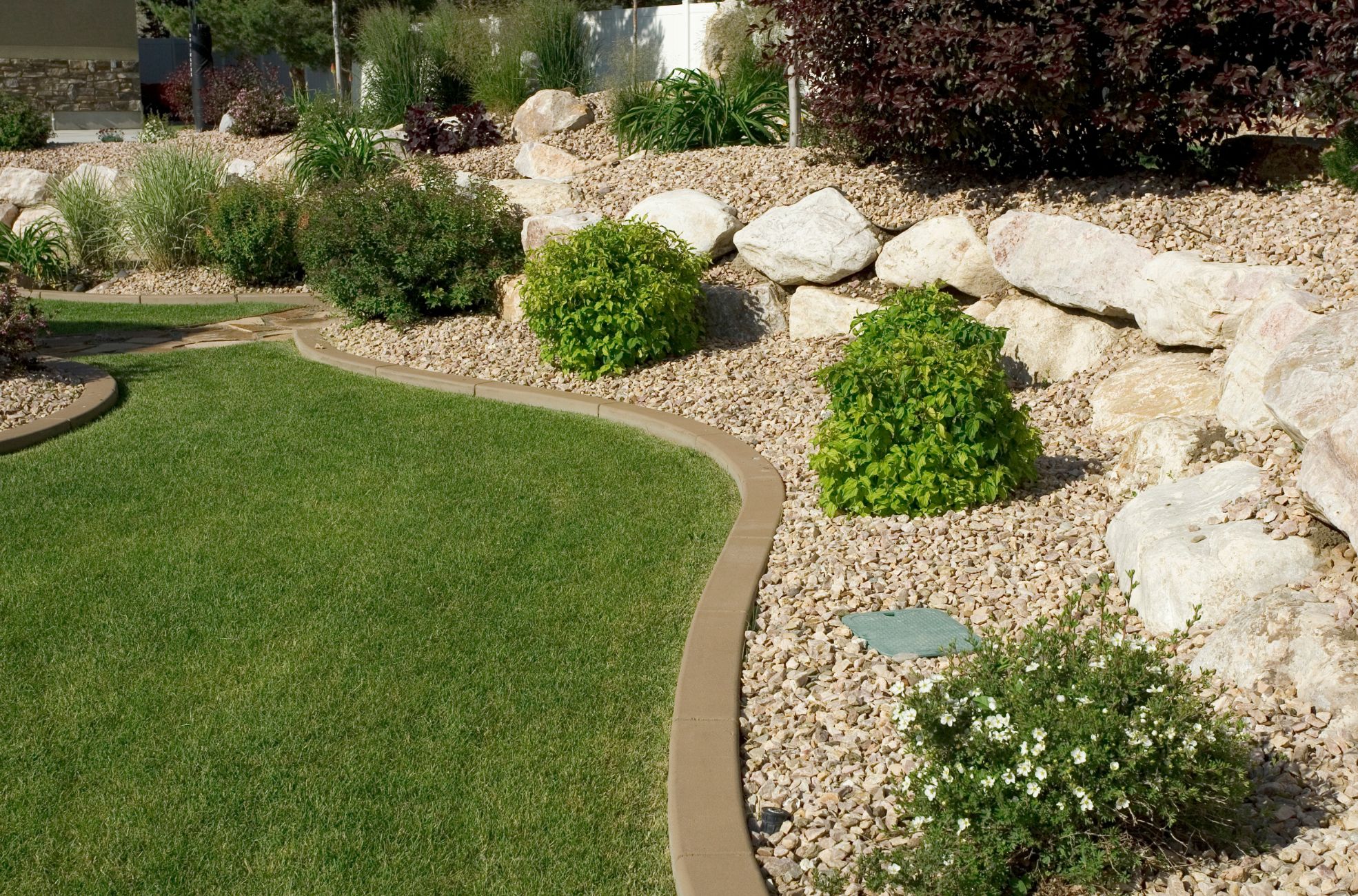Learning how to start a landscaping business in 2024 requires a keen understanding of the industry’s dynamics, customer preferences, and legal landscapes. With the UAE’s landscaping sector experiencing substantial growth, aspiring entrepreneurs have an opportunity to cultivate a successful enterprise amidst burgeoning demand.
We lays the groundwork for your entrepreneurial journey, from identifying your service niche and understanding the competitive environment to grasping legal nuances and crafting an effective business plan. Whether you’re looking to create picturesque garden designs or offer sustainable maintenance solutions, we help you navigate the essentials of launching and operating a successful landscaping company or business in the ever-evolving UAE market.
A Look at The Landscaping Industry In The UAE
Your Landscaping Services
The landscaping sector in the UAE is a thriving market, with a value that surpassed USD 1.2 billion in 2021 — and is expected to grow robustly in the coming years. If you’re considering launching a landscaping business in 2024, you’ll need to understand the range of services offered. Landscaping encompasses a variety of activities, from enhancing a property’s natural features with trees and shrubs to landscaping licences, installing modern landscape architecture, and other landscaping businesses such as ornamental plantings and fencing.
This process blends horticultural knowledge with design skills, addressing both aesthetic and functional needs. Services can be broadly categorised into installation and maintenance, with further subdivisions into hardscape (non-living elements like walkways) and softscape (living elements like gardens).
Analysing Market Demand and Competition
Several factors drive the UAE’s landscaping market, including government initiatives to promote sustainable living and the growth of the tourism sector. In particular, Dubai, Abu Dhabi, and Sharjah have seen increased demand for landscaping in hotels, malls, and office buildings. The creation of a tourism development fund is expected to boost this demand further.
Residential interest in landscaping companies is also on the rise, with a preference for low-maintenance yet visually appealing setups. As new businesses enter the market, it’s important to analyse the competitive front landscape professionals have. This includes established firms such as Azhar Al Madina Landscape, Green Vista Pools, and Cento Landscaping LLC.
Understanding the services offered by competitors’ existing businesses and identifying gaps in the market can help you position your new business effectively.
Identifying Your Target Demographic
The UAE’s landscaping market caters to a diverse clientele segmented into commercial, residential, and industrial customers. There are further specialisations within these segments in the healthcare, hospitality, office, institutional, retail, and housing sectors. The high-income population, which represents a significant portion of the UAE’s demographic, greatly influences the demand for landscaping services.
Identifying your target demographic is key to tailoring services to specific needs. This could involve creating luxurious garden spaces for private villas or designing functional green spaces for corporate offices. The trend towards eco-friendly lifestyles also presents opportunities for businesses that can offer sustainable and organic gardening solutions.
Learning Legal and Environmental Regulations
Starting a landscaping business in the UAE requires a thorough understanding of the legal and environmental regulations in place. The government’s commitment to sustainable development is reflected in the regulations that landscaping businesses must adhere to. These may include restrictions on water usage, the types of plants that can be introduced, and the methods used for soil preservation.
In addition, your company must navigate the legalities of operating in the UAE. This involves obtaining the necessary licences and adhering to municipal guidelines aimed at efficient planting and garden maintenance. Staying informed about these regulations ensures compliance and shows a commitment to responsible business practices that can enhance your company’s reputation in the market.

Crafting a Business Plan
A well-constructed business plan is essential for the success of a new venture. It serves as a roadmap that details your vision, strategies, and the actions required to reach your business goals. It’s also a critical document for communicating your enterprise’s potential to investors and other stakeholders.
Setting Clear Business Objectives
The initial step in developing your business plan is to establish clear, concise objectives. Applying the SMART criteria can help ensure your goals are Specific, Measurable, Achievable, Relevant, and Time-bound. This approach ensures each goal is well-defined, has a clear outcome, is achievable with your resources, is aligned with your company’s values, and has a set deadline.
For instance, you might target securing a specific number of new contracts within the first year of business insurance or reaching a particular revenue milestone. Your objectives should be informed by a comprehensive understanding of the local market and consider demographic and economic trends that could influence your enterprise.
Detailing Your Service Offerings
In your business plan, delineate the services you intend to provide. These might encompass landscaping insurance, garden design, maintenance, hardscaping, or niche services like water feature installation. Awareness of the certifications necessary for professional landscapers is crucial, as these can vary by location and may not be transferable.
Consideration of the tools and machinery required for your services is necessary, with some needing individual licences for operation. Planning for the disposal, recycling, and construction of any unique features you plan to offer is also crucial.
Outlining Operational Logistics
Operational logistics for your landscaping business plan will include securing the appropriate permits and ensuring client satisfaction upon project completion. It requires meticulous planning for storing and transporting materials and the possibility of recycling or composting. Considerations for the construction of structures, such as footings and foundations, are also included.
Ensuring the job site is left in excellent condition is a part of operational logistics. Completing a project encompasses the physical work, client satisfaction, and meeting any necessary inspections.
Projecting Financials and Funding
A solid financial model is vital for grasping the startup costs, ongoing small business side expenses, and potential revenue. You’ll need to account for the costs of staff, fuel, rent, equipment upkeep, and marketing. Your capacity, influenced by your workforce and the duration of each contract, will determine the number of contracts you can manage.
Revenue projections should be categorised by contract type, with consideration for the rates and costs associated with each. Preparing a profit-and-loss statement is essential for monitoring key financial metrics such as Gross Profit or EBITDA margin.
A cash flow statement is also necessary to monitor all cash transactions, including capital investments and debt. Understanding the use of funds is imperative for determining the funding required to initiate and sustain your enterprise. This financial planning is critical when seeking investors or loans, as it demonstrates your business’s viability and potential profitability.

Legal Aspects of Starting Your Landscaping Business In The UAE
Choosing a Business Structure
Selecting the appropriate legal form for your company is crucial. Options range from Sole Proprietorship to Civil Company, LLC, FZC, Partnership, PJSC, Private Joint Stock Company, and Branch Office of Foreign Companies. Each has distinct implications for limited liability company name, taxation, and compliance.
A Sole Proprietorship offers simplicity and full control, yet it also means personal accountability for debts. On the other hand, an LLC provides a shield for personal assets. For entrepreneurs attracted to the benefits of free zones, an FZC could be particularly advantageous.
Registering Your Business Name
Securing a trade name is a critical step that involves more than just making it official; it’s about selecting a name that reflects your brand’s identity. Ensuring your chosen name is unique and not previously registered or reserved is essential.
The process involves visiting the Department of Economic Development in the respective Emirate to register your trade name.
Obtaining Necessary Licences and Permits
Operating with the proper licences and permits is permissible. The type of business license required—Commercial, Industrial, or Professional—depends on your business activities. For instance, a professional license is necessary to provide expert advice.
Foreign entrepreneurs may need an LSA, and LLCs must have a majority of UAE nationals as shareholders, although profit-sharing can be structured differently.
Tax Requirements
Understanding the tax implications for your business is essential. While the UAE is known for its tax-friendly environment, compliance with tax regulations is still mandatory. The tax implications can vary based on your business activities and international trade involvement.
To meet all tax obligations, it is advisable to consult with a tax professional. The details will vary depending on your legal form and UAE location.

Building Your Brand and Marketing
Designing a Memorable Logo and Brand Identity
Establishing a distinctive brand identity is crucial for any new venture in the landscaping equipment industry. The logo, as a central component of your brand, should encapsulate your company’s ethos, target market, and core offerings.
When crafting your logo, consider the psychological impact of your colour choices, as they can shape perceptions of your brand. A monochromatic colour palette is often chosen for its versatility and simplicity. Your logo’s form and typography also play a critical role in its overall effect and recognition. Soliciting feedback throughout the design process is essential to fine-tuning your logo and resonating with your intended audience.
Once finalised, ensure your logo is consistently displayed across all mediums to solidify your brand identity.
Developing an Online Presence with a Website
A website is indispensable for engaging with potential customers and establishing credibility. It serves as a platform to present your brand, including your logo, array of services, and client feedback. Begin by securing a suitable domain name and selecting a hosting service.
Choose a web development tool that aligns with your business requirements and populate your site with compelling content and visuals. Expand your online footprint by ensuring your business appears on local directories and platforms such as Google My Business, Bing Places, and Apple Maps to enhance visibility and search engine rankings.
Inclusion on industry-specific platforms like Houzz, Nextdoor, and LandscapingNetwork can also be instrumental in connecting with prospective clients. A robust online presence and an intuitive website can greatly increase your brand’s exposure and trustworthiness.
Utilising Social Media and Local Listings
Social media serves as an interactive channel to engage with prospective clients and display your landscaping projects. Consistent updates on platforms like Facebook, Instagram, and YouTube can maintain a strong online presence and demonstrate the calibre of your work. Direct engagement with clients on these platforms can foster relationships and promptly address inquiries or feedback.
Consider leveraging social media advertising and management tools to plan content and monitor interactions. Encouraging clients to share their experiences with your services can amplify word-of-mouth promotion. Collaborations with influencers and user-generated content can further elevate brand recognition and generate excitement about your offerings.
Networking and Word-of-Mouth Strategies
Providing outstanding service is the cornerstone of generating positive word-of-mouth. High-quality offerings and a smooth customer journey are essential for surpassing client expectations. Effective inventory management, punctual deliveries, and accessible customer support can help prevent dissatisfaction.
Engaging with influencers and creating visually appealing experiences can distinguish your brand. Differentiating your brand, whether through unique offerings or inventive business practices, can stimulate organic discussions and endorsements. Publicising authentic customer testimonials across various channels can foster trust and encourage referrals.
Implementing a referral marketing program can incentivise satisfied clients to promote your brand, thereby extending your influence and standing within the landscaping sector.

Operating Your Landscaping Business
Acquiring Tools, Equipment, and Supplies
Acquiring the appropriate tools, equipment, and supplies is essential to commencing your landscaping enterprise. Initial costs for a commercial push mower start at USD 3,260 and escalate to USD 6,520 or more, while zero-turn models may range from USD 3,260 to USD 17,390.
String trimmers, vital for accessing areas mowers cannot, are priced between USD 326 and USD 543. Hedge trimmers and handheld edgers, crucial for detailed shaping and defining edges, may cost approximately USD 543 and USD 326 to USD 652, respectively, with high-end edgers reaching USD 1,090.
Handheld commercial blowers are priced around USD 326 or USD 435, with backpack models closer to USD 760. Spreaders and sprayers are essential for lawn treatments, with spreaders priced between USD 108 and USD 435 and sprayers priced from USD 16 for handheld models to USD 217 to USD 1,305 for advanced tow-behind units.
Transportation and hauling needs dictate the purchase of a reliable truck, with prices ranging from USD 10,870 to USD 65,215, and trailers, which vary from USD 1,086 to over USD 4,350 based on size. Additionally, basic supplies like durable plastic buckets and lawn bags are necessary, with costs around USD 4.30 and USD 27 for a pack of 50, respectively. Hand tools such as shovels, rakes, pruners, and wheelbarrows are indispensable, with prices up to USD 163. Safety gear is also a priority, with potential costs from USD 10.80 to several hundred pounds.
A prudent estimate for the initial investment in tools and equipment for a new landscaping business could be between USD 27,170 and USD 43,475.
Hiring and Training Employees
The hiring and training process must be meticulously planned and comply with legal requirements. Deciding between independent contractors and permanent staff has significant financial implications, including tax liabilities and benefits.
Obtaining an EIN and understanding the requirements for state or local tax IDs are necessary. New employees should complete a W-4 form, and establishing a payroll system that complies with tax withholding schedules is essential. Depending on your resources, payroll can be managed internally or through a third party.
Compensation should encompass holidays, vacation, and leave, with meticulous record-keeping as mandated by law. Payroll taxes must be filed regularly, and employers must match their employees’ Social Security contributions.
Insurance mandates differ by location, with Workers’ Compensation often required and Disability Insurance necessary in some areas. Unemployment insurance costs also vary by state.
Providing optional benefits such as health insurance, retirement plans, and bonuses can enhance your appeal as an employer. While not obligatory, these perks can contribute to a more dedicated and stable workforce.
Implementing Efficient Scheduling and Workflow
Optimising scheduling and workflow is fundamental to the success of your landscaping business. It impacts client satisfaction, profitability, and growth. Challenges such as excessive overtime and administrative burdens can impede operations, making effective management of these elements crucial.
Digital tools like Accelerate can significantly enhance business management. Features like a Scheduling Board can help forecast overtime, enabling proactive adjustments. Automated labour tracking minimises errors and saves time, while detailed overtime reports provide insights for improving efficiency.
Addressing administrative tasks is essential to focus on primary business functions and foster growth. Embracing technology to oversee operations can prevent the inefficiencies associated with fragmented systems and isolated data.
Delivering Quality Service and Growing Your Client Base
Providing exceptional customer service is fundamental to the success of a landscaping business. This involves establishing clear communication with clients and managing their expectations. Ensuring your team delivers high-quality service and interacts with clients courteously is crucial.
Soliciting client feedback through surveys and other methods can provide valuable insights into your service quality. Responding to this feedback and making necessary adjustments can enhance customer loyalty and satisfaction.
Ultimately, your landscaping business’s reputation will depend on your service quality. By consistently fulfilling and surpassing client expectations, you can cultivate a brand known for its excellence in the landscaping industry.

Cultivating Success in Landscaping
Embarking on a journey in the UAE’s burgeoning landscaping industry calls for diligence, passion, and a keen adherence to quality and sustainability. Each detail, from comprehending market nuances to assembling an adept team, builds the foundation of your landscaping enterprise. As you navigate through the meticulous stages of developing your business plan, acquiring the right tools, and implementing proactive management strategies, remember that your commitment to excellence is the seed from which client trust and business growth sprout.
With every garden you design and every green space you enhance, you’re not just sculpting land but are also crafting a legacy that could redefine urban landscapes. Ready your resources, align your aspirations, and let the journey to a greener tomorrow begin with the first step you take today.
FAQs
How Profitable Is a Small Landscaping Business in the UAE?
A small landscaping business in the UAE can be quite profitable, given the region’s booming real estate sector and the growing emphasis on green spaces in urban environments. The profitability hinges on several factors, including the scale of operations, the services offered, and the efficiency of business management. In the UAE, where luxury villas and commercial properties often seek high-quality landscaping services, businesses that offer innovative and sustainable landscaping solutions can command premium prices. However, the initial setup costs, ongoing maintenance, and the seasonal nature of the work can affect overall profitability.
What Are the Cons of Owning a Landscaping Business?
Owning a landscaping business comes with several challenges. The work is physically demanding and often requires long hours outdoors, which can be particularly challenging in the UAE’s hot climate. The business is also seasonal, with demand fluctuations throughout the year, leading to variable income. Initial startup costs can be high, including equipment, vehicles, and staff expenses. Additionally, the industry is competitive, and maintaining a skilled workforce can be challenging due to the transient nature of labour in the UAE.
What Is the Most Profitable Part of Landscaping?
The most profitable part of landscaping often involves specialised services such as landscape design, irrigation system installation, and hardscaping (installation of non-plant elements like walls, paths, and water features). These services require a higher level of expertise and can command premium prices. Additionally, ongoing maintenance contracts provide a steady income stream and can be very lucrative, especially when serving commercial clients or upscale residential areas.
Is Lawn Care a Good Business to Start in the UAE?
Starting a lawn care business in the UAE can be a good opportunity, particularly in areas with a high concentration of villas and commercial properties that prioritise green spaces. The demand for lawn maintenance, including mowing, fertilisation, pest control, and irrigation services, can provide a steady source of income. However, it’s important to consider the unique challenges of lawn care in the UAE, such as the harsh climate, water usage regulations, and the need for sustainable landscaping solutions, which can influence the viability and success of the business.
Is Landscaping a High-Risk Industry?
Landscaping is a moderately high-risk industry due to several factors. The physical nature of the work increases the risk of injuries. At the same time, the use of heavy machinery and chemicals poses additional safety and health risks. In the UAE, the extreme heat adds to these challenges, requiring measures to protect workers from heat-related illnesses. Businesses also face financial risks from fluctuating demand and competition. However, these risks can be mitigated with proper safety protocols, insurance, and business management practices.









